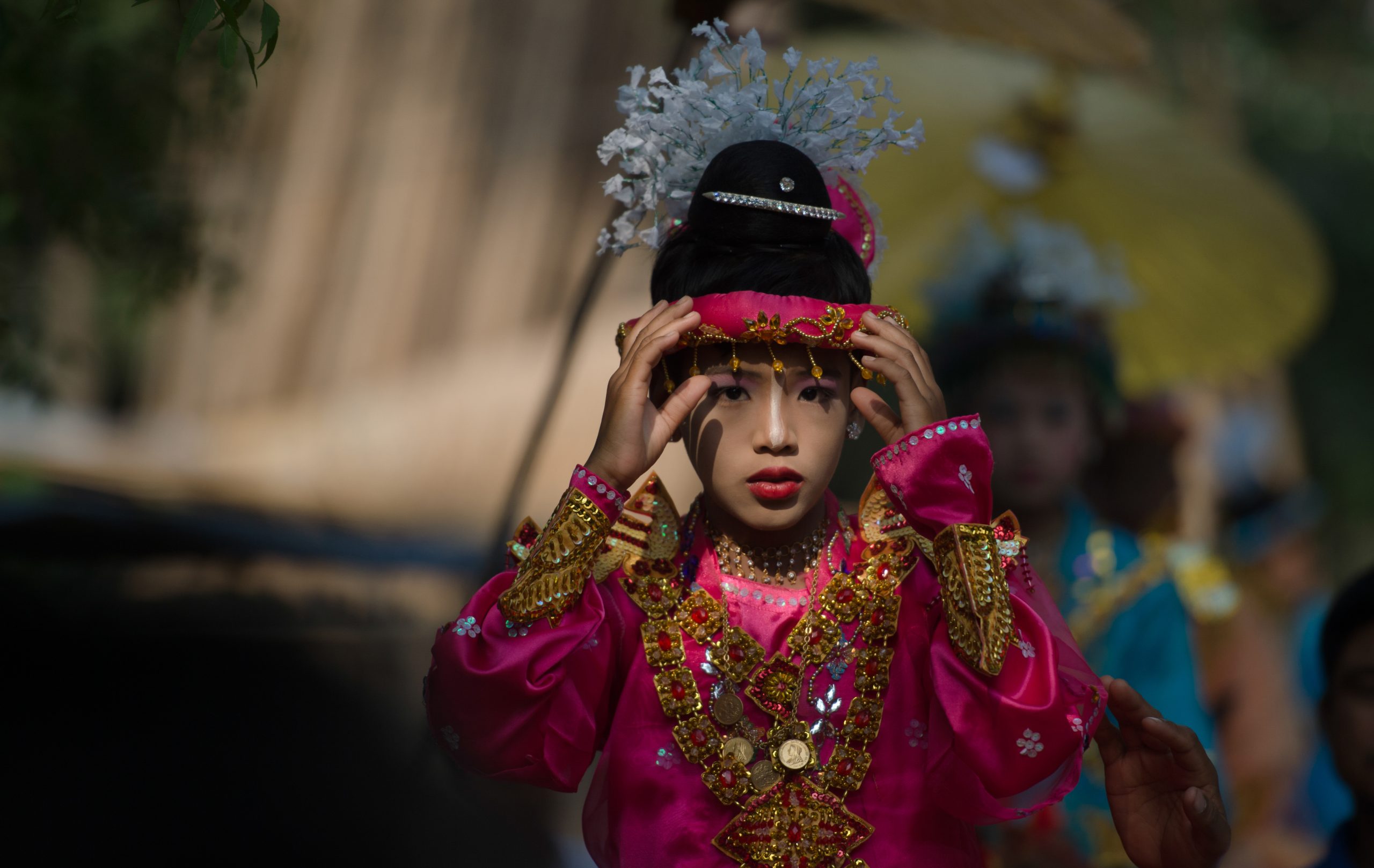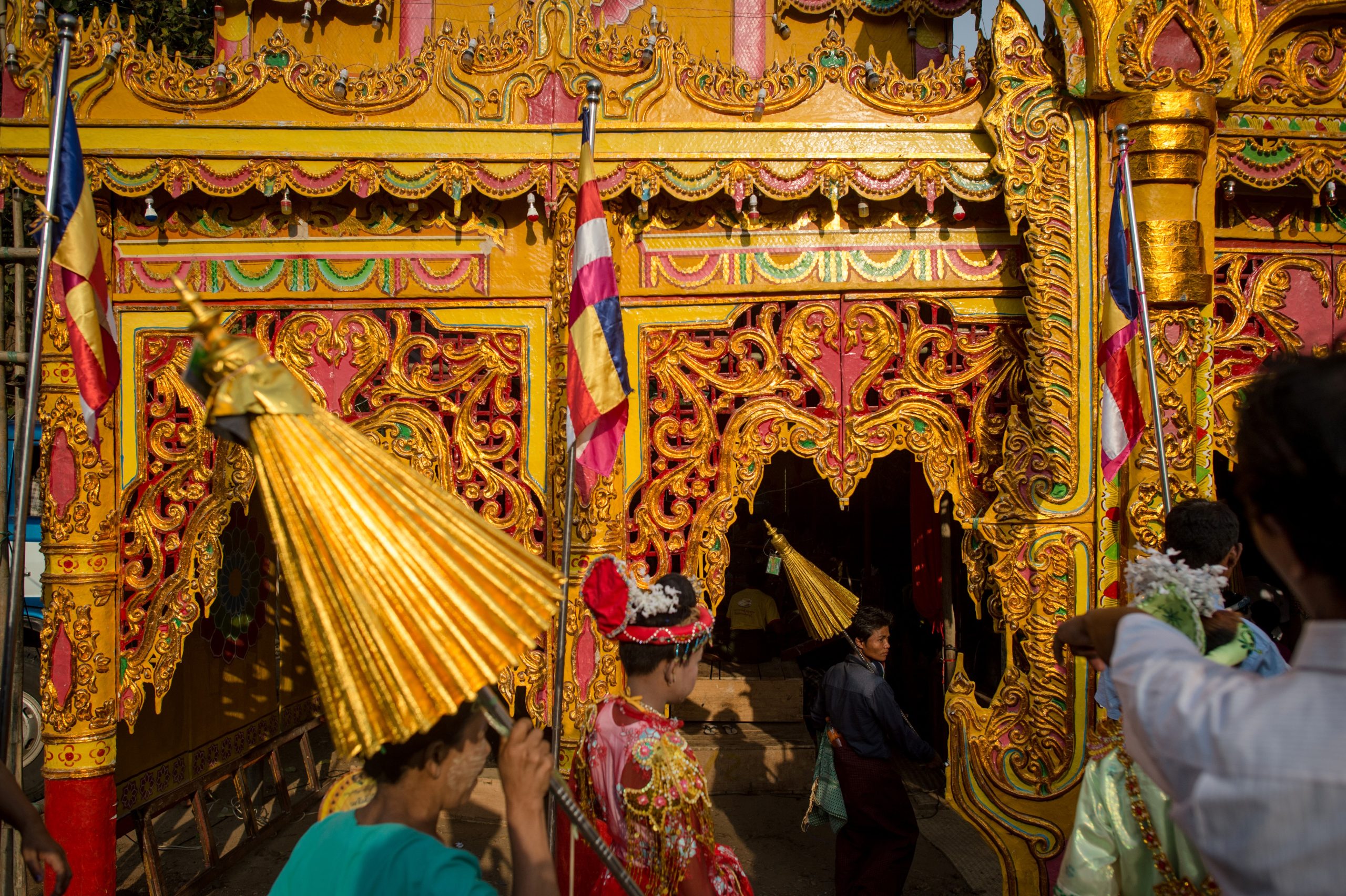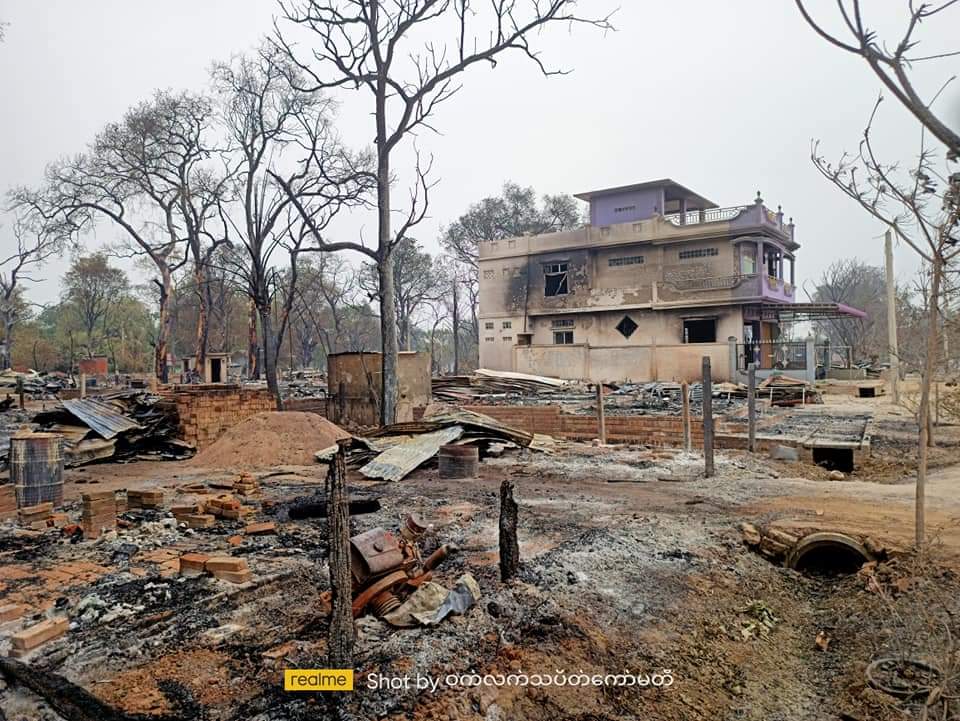Myanmar people are not only experiencing loss of life as their houses are torched and the military goes on killing sprees, but have also been forced to halt some important traditional and religious rituals due to the regime’s violence in their communities.
One of the most significant rituals to have been halted is the Shinbyu novitiation ceremony. Shinbyu is a Burmese term meaning “initiating into the Theravada Buddhist order as a novice”, marking the monastic ordination of a boy under the age of 20. It is one of the centuries-old traditional rituals all Myanmar Buddhist parents are supposed to organize for their male children.

Ko Zarni Hein has been waiting for the day of his only son’s Shinbyu novitiation ceremony for nearly three years. The 39-year-old and his wife dearly want to fulfil their most important duty as parents, but the military coup has thwarted their ambition.
He is an Agricultural Department staff member who joined the Civil Disobedience Movement (CDM) after the military coup and lives in a village in Sagaing’s Yinmabin Township, where the regime launched air strikes twice last year, leaving more than two dozen people dead.
Currently, their family and other villagers are living in fear of the junta troops’ violence. Therefore, he doesn’t want his son to go through the novitiation ceremony, although his son is 11 years old.
His intention was to make a large donation with a hsaing waing (traditional Burmese orchestra), because his grandparents made such a donation many years ago. However, he dropped the plan after junta boss Min Aung Hlaing staged the coup.
“I can no longer hold the Shinbyu because of the deaths, the burning, and the destruction caused by the military in our region,” Ko Zarni Hein told The Irrawaddy.
The experience of Ko Zarni Hein reflects the current situation of the residents of the Anyar region (or Upper Myanmar), which comprises Mandalay, Sagaing and Magwe, where the majority of Myanmar Buddhists live.
Anyar residents haven’t been able to celebrate the Shinbyu novitiation ceremony because they have suffered immeasurable losses due to the regime’s arson campaigns, as the areas are anti-regime strongholds.
Tens of thousands of Anyar residents have lost everything—including houses, crops, looms and agricultural machines—in the regime’s raids and arson attacks during the two years since the military seized power in 2021.
According to independent researchers Data for Myanmar, over 57,183 houses in the Anyar region have been burned down by junta forces. This is 94 percent of the total number of civilian houses that have been burned down nationwide. Sagaing Region has suffered the most in Anyar, with 47,778 civilian homes torched as of the end of February 2023.
A season without Ah-lhu

Ah-lhu is the common local term for Shinbyu in Upper Myanmar.
An Ah-lhu ceremony typically involves a large food donation to the community and offerings to monks or the monastery where the freshly novitiated boys have to study religious scriptures as novice monks.
Generally, Myanmar people hold the ceremonies in March and April, coinciding with Myanmar’s traditional new year holiday. Families that send their sons to monasteries are very proud of their achievement because the Shinbyu ceremony is considered one of the greatest merit-making Buddhist rituals in Myanmar.
Ah-lhu in Upper Myanmar is famous because the Anyar people celebrate it magnificently with traditional music and dance. It demonstrates the locals’ sense of community spirit, as residents collect rice and vegetables in advance for use in Ah-lhu months before. They share the tasks for a month beforehand and all the villagers divide the work among them, like preparing feasts for guests and monks, and decorating the venue.
“The villagers enjoy themselves starting about a month before the celebration,” said U Myat Sein, a resident of Yinmabin Township.
He said that before the seizure of power, the Ayar region was filled with donations and the sound of Byaw—traditional ceremonial music, often played with ceremonial drums called Sidaw.
“It’s been a long time since the sound of the Byaw and Sidaw were heard in Anyar,” said the 57-year-old teacher.
Catastrophe for Anyar residents
Ma Tin Sein from Magwe Region’s Myaing Township said the Anyar people aren’t able to enjoy seasonal festivals or make religious donations because their lives have been destroyed by junta troops.
The woman in her 30s, a mother of two children, has been living in the forest for a year due to the junta raids and frequent arson attacks. Her village in northern Myaing Township has suffered arson attacks twice, with around a hundred houses burned to ashes, including her own.
“We can’t do religious donations like Ah-lhu anymore because we have been forced to flee,” Ma Tin Sein told The Irrawaddy.
Not only the residents but also the monks have suffered due to regime arson attacks and violence, according to a monk from a village in Ayardaw Township of Sagaing Region. His native village suffered two regime arson attacks and almost all the houses—around a thousand—were burned down.

The residents aren’t able to donate daily meals for monks. So, the monks are cooking for themselves. Before the military coup, there were at least a dozen Shinbyu novitiation ceremonies in his village a year. However, his village and other nearby villages in Ayardaw Township that have been raided by junta troops are as silent as cemeteries, according to the monk.
“Even residents who are rich enough to hold a large Shinbyu novitiation ceremony can’t do it because of the frequent raids by junta troops,” the monk told The Irrawaddy.
A senior monk in his 50s in Yinmabin Township said Myanmar Buddhist people are usually never reluctant to make donations, but currently they are facing the most difficult time of their lives and are just trying to survive a dark era.
“Villages were burned, and the villagers had to flee, so they could no longer donate,” the senior monk told The Irrawaddy.
Something positive in dark times
The above Anyar residents said that they have learned to rely on each other as they endure the regime’s violence. The villagers help and take care of each other and are ready to share everything they have after suffering regime raids and arson campaigns.
U Kyaw Moe, a resident of Pale Township in Sagaing Region, said that unlike people in other regions and states, the Anyar people had rarely experienced military troops’ atrocities before the military coup. Now, if a home is torched somewhere, they feel like their own house is being burned down.
“If a village is torched, other villages are ready to share food, water and cattle feed. That is the profit we have gained from this time,” U Kyaw Moe told The Irrawaddy.
The return of Byaw, Sidaw to Anyar
Many residents from Anyar region resist the repression of the military and hope that they will be able to celebrate making a large donation one day after the people’s revolution has succeeded.
A 29-year-old woman from Mandalay Region’s Myingyan Township said the revolutionary spirit of the Anyar people is still strong, although the regime has destroyed their lives with its scorched earth campaign.
“Many have already determined that they will not celebrate the Shinbyu novitiation as long as the military regime rules in Myanmar,” a Myingyan resident told The Irrawaddy.
U Kyaw Moe said that while some have held Shinbyu on a very small scale, elaborate donation ceremonies have not been performed because residents want to show their respect for the losses of other people by keeping quiet even during the festival season.
Ko Zarni Hein from Yinmabin continues to wait for a time when the people’s revolution has succeeded in order to hold a Shinbyu novitiation ceremony for his son.
His voice cracked with emotion as he explained his determination. He added that he doesn’t mind waiting, even if his son grows old enough to get married.
“I will make a big donation after we win.”

















